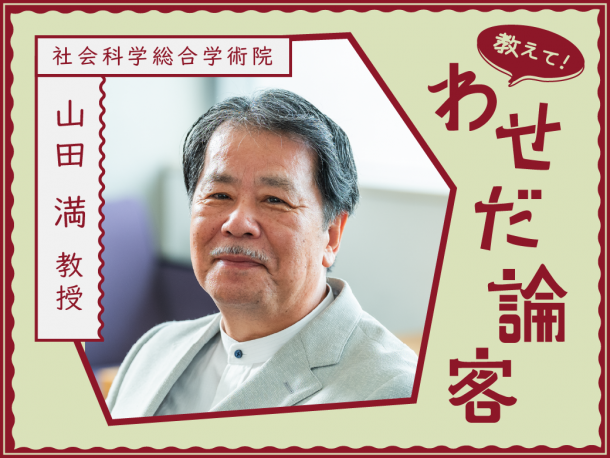
Many Waseda students may feel that social issues are somehow intimidating. In "Lectures by Experts" we focus on specific problems facing society and ask four Faculty to give us hints on how to solve them.
The theme for 2023 is "How to Keep the Peace?" As the world situation becomes unstable due to Russia's invasion of Ukraine and the Palestinian issue, we will once again consider what peace means. The fourth guest for the last part of the seminar is Mitsuru Yamada Professor (Faculty of Social Sciences), who researches peacebuilding and international cooperation theory mainly through fieldwork. In the first part, he talked about what he thinks peace is and the viewpoints necessary to keep peace.
Professor Yamada, how can we protect peace?
A state without war does not necessarily mean peace. We should also be conscious of "invisible violence" such as poverty, hunger, and discrimination, and have a perspective and way of thinking that prioritizes protecting people's daily lives.
A state without war does not necessarily mean peace. Aiming for “positive peace” without structural violence
First of all, please tell us about the content of your research.
Specializing in international cooperation and peacebuilding, I have conducted research that emphasizes not only writing papers but also having real contacts with people in other countries through fieldwork. I meet and listen to a wide variety of people, from local townspeople to university students, JICA and NGO staff, embassy diplomats, and even national leaders. We also place emphasis on fieldwork in our classes and seminars.
When you see a social problem on the ground, your understanding of the problem changes dramatically. As they say, seeing is believing, and there are many pieces of information and insights that can only be obtained by seeing the scene.
For example, regarding the issue of child labor, I realized that ``In that brick house, children as young as 10 years old were helping their parents with work instead of going to school.'' ``But the children's expressions were so lively.'' If you have this, you will develop a new perspective within yourself when thinking about social issues. I think these things are important when thinking about peacebuilding.
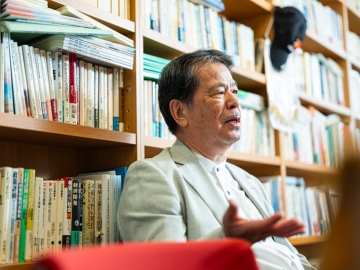
First of all, what kind of state does "peace" refer to?
When many people hear the word peace, they may imagine a state without war. However, a state without war does not mean peace.
Indian peace researcher Sugata Dasgupta proposed that the opposite of peace is not ``a state of war,'' but ``peacelessness.''
Until then, peace research had focused on research to prevent war. However, he pointed out that Eastern countries such as India are in a situation that cannot be called peace just because there is no war. Dasgupta argued that ``conditions that are not peaceful,'' including poverty, hunger, and discrimination, are issues for peace research.
Norwegian sociologist Johan Galtung is said to have been influenced by this. Galtung says that ``peace = a state without war'' is nothing more than ``negative peace.'' He proposed that ``positive peace'' is a state free of ``structural violence'' and ``cultural violence,'' which include various issues built into social structures.
In order to realize "positive peace," we must be conscious not only of direct violence such as war, but also of "invisible violence" such as poverty, hunger, and discrimination within the social structure. yeah. In that sense, it can be said that the root of peace is being able to live our daily lives without being threatened by various forms of "violence."
Left photo: Camp for displaced people after the East Timor riots in 2006
Photo right: 2007 Timor-Leste National Assembly elections. A woman holding her child while voting
The first step toward "peace" is to create an environment where people can live their daily lives with peace of mind.
I agree. Conversely, if people's daily lives are guaranteed, there may be cases in which it is better for other countries not to intervene, even if the political system is different from a liberal democracy.
Of course, we must speak out against the problems occurring in countries with authoritarian political systems. However, if liberal norms are imposed on a country, it may confuse the country's political society and destroy its cultural resources.
What is required is to respect the values of each country while aiming to build peace in a way that is eclectic between local society and liberal democratic values. Rather than thinking in terms of dichotomies such as dictatorship, authoritarianism, or liberal democracy, we need to view things in terms of all rights and wrongs.
Photo left: 2009 presidential election in Afghanistan during conflict
Photo right: Line of voters waiting to vote in the 2015 general election in the Republic of the Union of Myanmar.
Reconsidering the center of gravity of peace: Who is it for?
How would you answer the question, "How do we protect peace?"
Generally speaking, the first approach to preserving peace is for each country to focus on "justice" in the international community and work to resolve wars and conflicts. For example, it denounces Russia's invasion of Ukraine as a violation of international law and imposes sanctions on Russia. In response, Japan has provided military support to Ukraine, including economic aid and arms supplies.
I do not intend to deny the international community's response. However, at the same time, we must not forget that the lives of innocent civilians continue to be taken away against the backdrop of thorough military and economic sanctions. Once again, the international community's priority is to protect people's lives and daily livelihoods. Peacebuilding requires not only the pursuit of justice, but also the perspective of finding realistic ways to achieve an immediate ceasefire and guarantee daily life.
In the current international situation, I am concerned that the center of gravity of peace is being shaken, as to who should achieve peace. The motive for achieving peace must be for the benefit of innocent people, not for the benefit or disadvantage of one's own country. How can we protect our daily lives, aiming for "positive peace" that brings to mind the faces of these people? You will need to think about it.
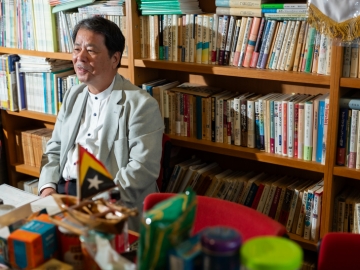
In the second part of the interview (released on November 29th), we will deliver a message to Waseda University students who are surviving in the international society. stay tuned!
Mitsuru Yamada
Professor Faculty of Social Sciences. Ph.D. (Political Science). His areas of expertise include international cooperation, peacebuilding, international relations, and Southeast Asian politics. Also engaged in election monitoring activities (as dispatched to international NGOs, the Cabinet Office's International Cooperation Headquarters, and the Ministry of Foreign Affairs), as a JICA technical cooperation expert, and as ODA evaluation chief. His books include “Peacebuilding Trilogy: Reconsidering Democracy, Development, and Peace” (Akashi Shoten, 2021) and “Peacebuilding in Asia through “Non-Traditional Security”: International Cooperation for Common Crisis and Threats” Is it possible?” (Akashi Shoten, 2021), etc.
Interview and text: Akane Ichikawa (Graduated from School of Culture, Media and Society in 2017)
Photography: Kota Nunokawa
Image design: Ryo Uchida
▼Click here for the second part!
"How do you protect peace?" Tell me! Professor Yamada (Part 2)

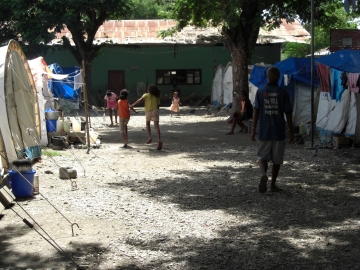
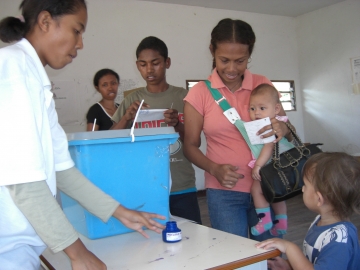
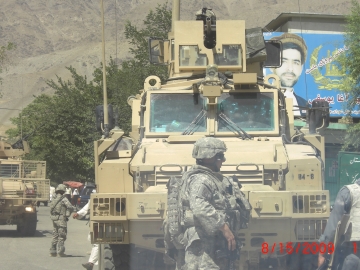
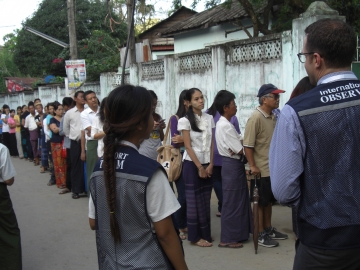
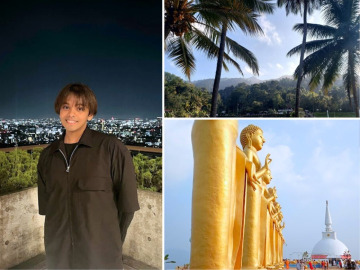
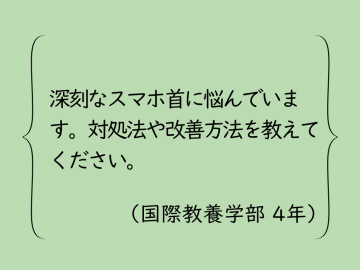

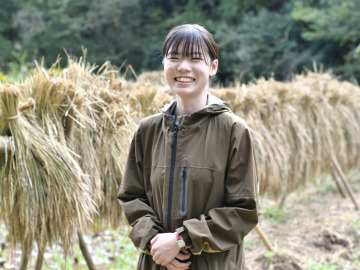

![[Save version] Map of the four main campuses](https://www.waseda.jp/inst/weekly/assets/uploads/2025/09/17cb2975123fc5103172ef60bd98608d-610x458.jpg)

